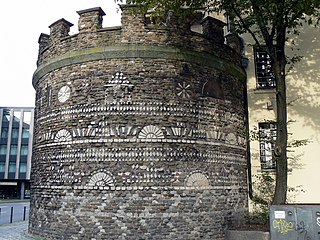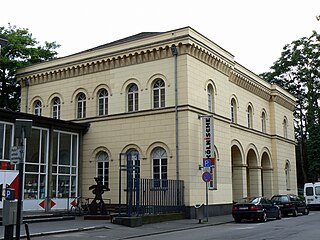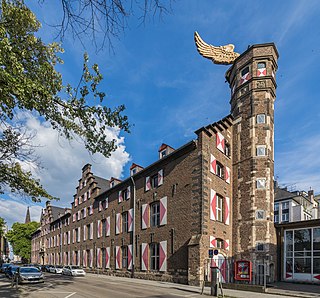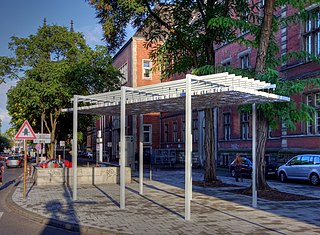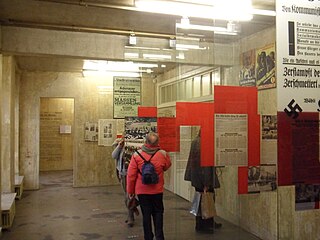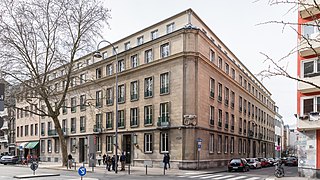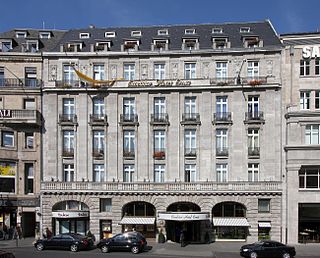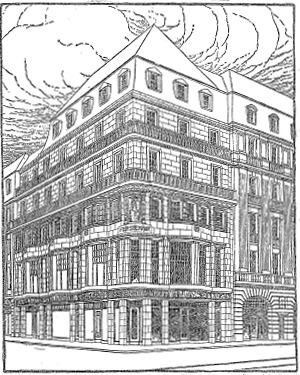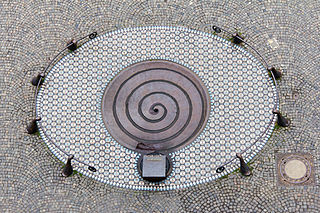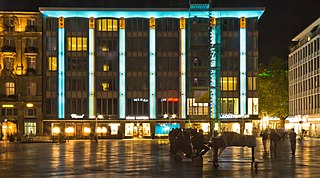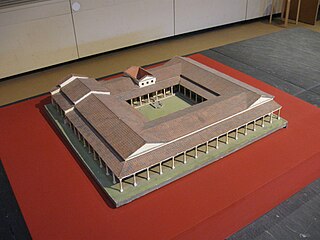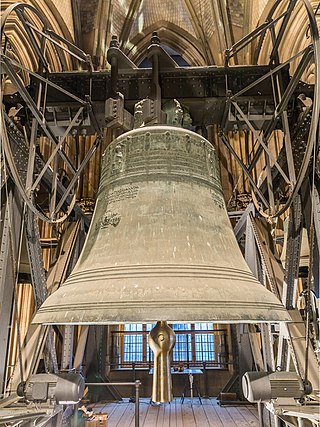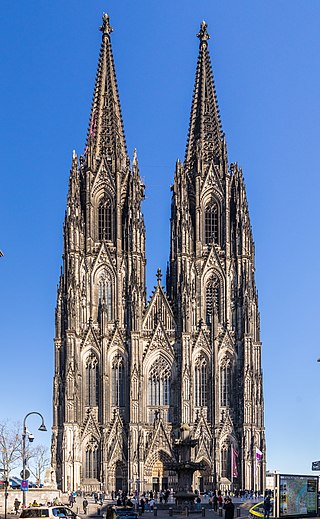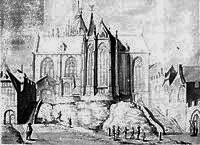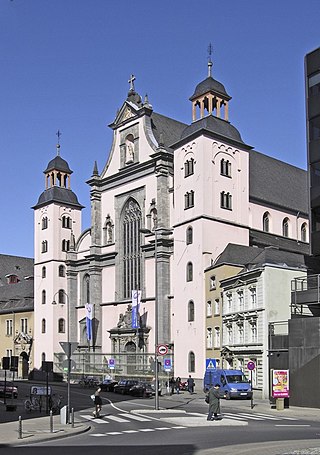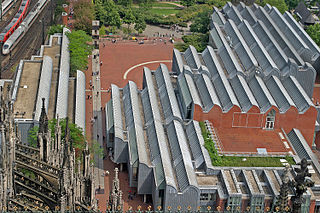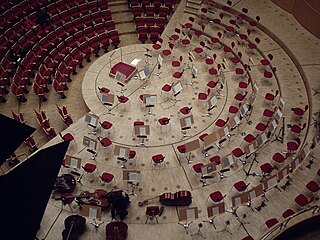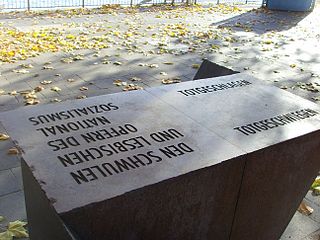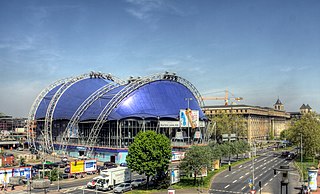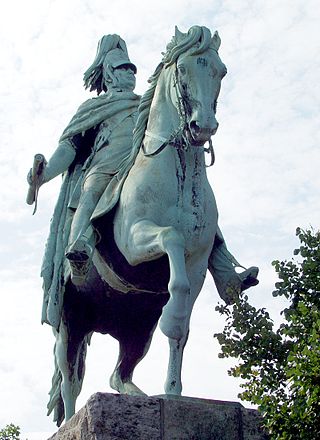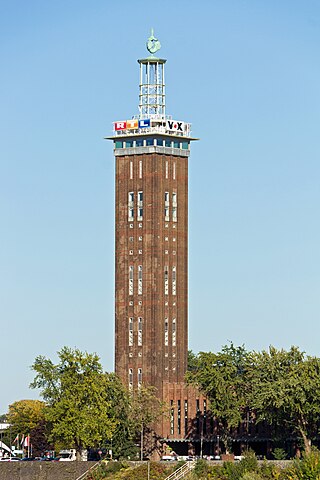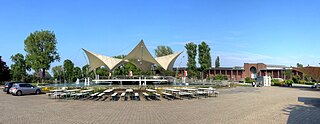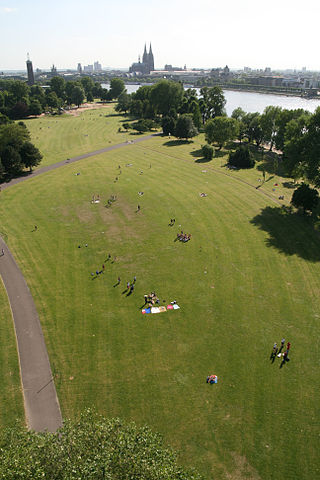Self-guided Sightseeing Tour #1 in Cologne, Germany
Legend
Guided Free Walking Tours
Book free guided walking tours in Cologne.
Guided Sightseeing Tours
Book guided sightseeing tours and activities in Cologne.
Tour Facts
6.4 km
106 m
Experience Cologne in Germany in a whole new way with our free self-guided sightseeing tour. This site not only offers you practical information and insider tips, but also a rich variety of activities and sights you shouldn't miss. Whether you love art and culture, want to explore historical sites or simply want to experience the vibrant atmosphere of a lively city - you'll find everything you need for your personal adventure here.
Activities in CologneIndividual Sights in CologneSight 1: Roman Tower
The Roman Tower is a Roman watchtower decorated with mosaics of the Roman city wall in Cologne's Old Town North.
Sight 2: Alte Wache
The Old Guard at the Armoury is one of the few preserved or rebuilt classicist buildings from the beginning of the Prussian period in Cologne. It is located opposite the regional council in Zeughausstraße. It is connected to the old armoury by a connecting building; the entire building complex houses the Cologne City Museum, with the Alte Wache being used for temporary exhibitions.
Sight 3: Der Goldene Vogel
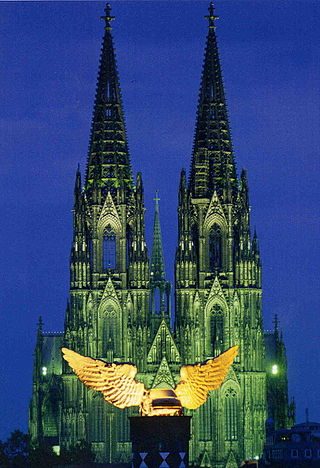
The Golden Bird is a winged, gilded car on the stair tower of the listed armoury in Cologne's old town. It is the relic of an art action by HA Schult and Elke Koska (realisation) from 1989, which was created as part of the Fetisch Auto action cycle. The Golden Bird has occupied its current and long controversial location as a "monument to the car era" since 25 April 1991.
Sight 4: Zeughaus
The Cologne Armoury is a building built between 1594 and 1606 as a municipal arsenal in the Altstadt-Nord district, which was part of the building complex of the Cologne City Museum from 1958 to 2021.
Sight 5: Memorial for Defectors and the Victims of Nazi Military Justice
The Deserters' Monument in Cologne-Altstadt-Nord on Appellhofplatz pays tribute to deserters and war opponents from the National Socialist era in the form of a pergola by Swiss designer Ruedi Baur. It was officially handed over to the public on the occasion of the 70th anniversary of the invasion of Poland by the German Wehrmacht on 1 September 2009.
Sight 6: St. Maria in der Kupfergasse
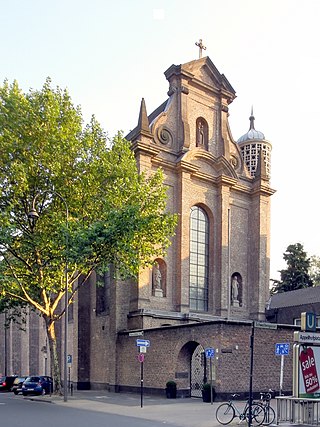
St. Maria in der Kupfergasse is a Baroque church in Cologne, western Germany, in the district of Innenstadt. The pilgrimage church is dedicated to St. Mary, the Black Madonna. It was completed in 1715 and measures 37.20 meters in length and 17.30 metres in width.
Sight 7: Justizgebäude am Appellhofplatz
The court building at Appellhofplatz is a historic building in Cologne-Altstadt-Nord on Appellhofplatz. The building, which has been preserved in a modified form, has been a listed building since 22 December 1983.
Sight 8: NS-Dokumentationszentrum
The NS Documentation Centre of the City of Cologne(German: NS-Dokumentationszentrum der Stadt Köln) was founded by a resolution passed by the Cologne city council on December 13, 1979, and has become the largest regional memorial site in all of Germany for the victims of the Nazis. Since 1988, it has been housed in "EL-DE Haus," the EL-DE building, named for the initials of its owner, Catholic businessman Leopold Dahmen. This building was the headquarters of the Cologne Gestapo between December 1935 and March 1945. In the final months of the war, several hundred people, most of them foreign forced laborers, were murdered in the courtyard of the building. In a bit of historical irony, the EL-DE building remained largely untouched by the ravages of the war.
Wikipedia: NS Documentation Centre of the City of Cologne (EN), Website
Sight 9: EL-DE-Haus
EL-DE Haus, officially the NS Documentation Center of the City of Cologne, located in Cologne, is the former headquarters of the Gestapo and now a museum documenting the Third Reich.
Sight 10: St. Maria ad Ortum
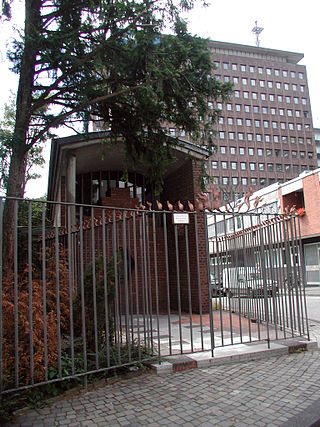
Maria ad Ortum was a three-aisled late Romanesque church of the Cistercian order "zo sent Marie garden", Mariengarten, in Cologne, which was abolished and laid down during the French period. It is still remembered today by a street name and a chapel bearing its old Latin name.
Sight 11: St. Andrew's Church
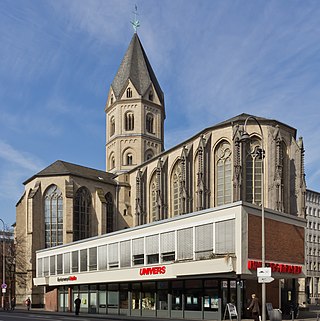
St. Andrew's is a 10th-century Romanesque church located in the old town of Cologne, Germany. It is one of twelve churches built in Cologne in that period. Archbishop Gero consecrated the church in 974, dedicating it to St. Andrew, although an earlier church at the site was dedicated to St. Matthew. In the 12th century, the church was rebuilt in the Romanesque style, and was probably completed after the great fire of Cologne in 1220. In the crypt of the church lies a Roman sarcophagus from the 3rd century, which holds the remains of the 13th-century theologian and natural philosopher St. Albertus Magnus. Since 1947, the Dominican Order has ministered to the church.
Sight 12: Excelsior Hotel Ernst
The Excelsior Hotel Ernst is a historic hotel established in 1863 in Innenstadt, Cologne, Germany, adjacent to Cologne Cathedral.
Sight 13: Fürstenhof
The former Hotel Fürstenhof is an office and commercial building in Cologne's Altstadt-Nord district. Due to its location directly opposite the cathedral, the building, which stands on the corner of Marzellenstraße 2–8 / Trankgasse, is one of the best-known secular buildings in Cologne. It was built in 1911 and 1912 according to a design by the Cologne architect Carl Moritz.
Sight 14: Kreuzblume
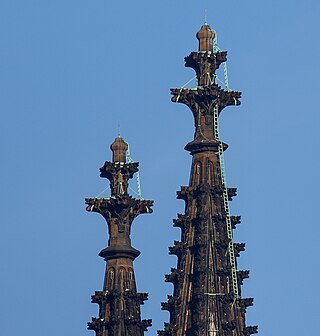
The finials of Cologne Cathedral from the tops of the two towers at a height of 149 to 157 metres. A copy of this finial in original size, but made of concrete, has stood below the steps in front of the west façade of the cathedral since 1991.
Sight 15: Taubenbrunnen
The Pigeon Fountain is a fountain sculpture designed by Ewald Mataré and erected in 1953 in the Cologne district of Altstadt-Nord, located in front of the west side of Cologne Cathedral or the Domplatte.
Sight 16: Blau-Gold-Haus
The Blau-Gold-Haus is an office and commercial building in Cologne's Altstadt-Nord, Domkloster 2, in the immediate vicinity of Cologne Cathedral. It was completed in 1952 and has been a listed building since 1991, was gutted in 2010–2012 and converted into a hotel. It is considered an important example of German post-war modernism.
Sight 17: Heinzelmännchen Fountain
Get Ticket*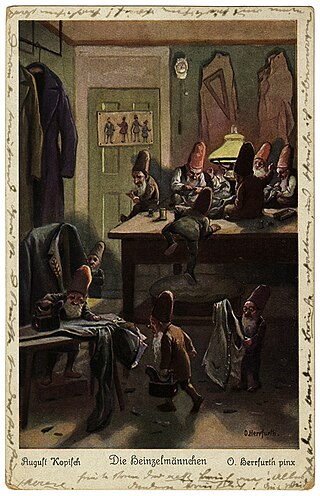
The Heinzelmännchen are a helpful household spirits or kobolds associated with the city of Cologne in Germany, akin to brownies of Scotland.
Sight 18: Dionysosmosaik
The Peristyle House with the Dionysus Mosaic is a Roman dwelling house, the remains of which were found in 1941 during the excavation of an air-raid shelter, the cathedral bunker, near Cologne Cathedral.
Sight 19: Saint Peter's Bell
St. Peter's bell is bell 1 of the Cologne Cathedral bells. It was cast on 5 May 1923 by master bell founder Heinrich Ulrich (1876–1924) in the bell town of Apolda and has its home in the belfry of the south tower. With a mass of around 24,000 kilograms and a lower diameter of 322 cm, it was the largest bell in the world for more than 90 years – until November 2016 – swinging on a straight yoke.
Sight 20: Cologne Cathedral
Join Free Tour*Cologne Cathedral is a cathedral in Cologne, North Rhine-Westphalia belonging to the Catholic Church. It is the seat of the Archbishop of Cologne and of the administration of the Archdiocese of Cologne. It is a renowned monument of German Catholicism and Gothic architecture and was declared a World Heritage Site in 1996. It is Germany's most visited landmark, attracting an average of 6 million people a year. At 157 m (515 ft), the cathedral is the tallest twin-spired church in the world, the second tallest church in Europe after Ulm Minster, and the third tallest church of any kind in the world.
Sight 21: Cologne Cathedral Treasury
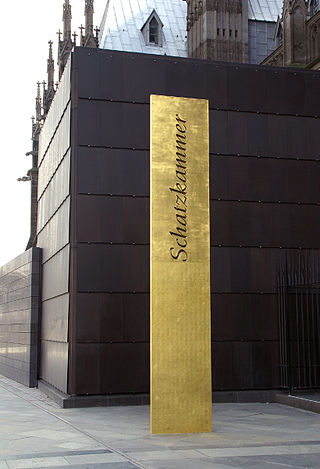
The Cologne Cathedral Treasury of the Metropolitan Chapter of the High Cathedral Church belongs to Cologne Cathedral. It is located on the north side of the cathedral. Large parts of the Cologne Cathedral Treasury are exhibited in it. Christian art from the 4th to the 20th century is shown there. The cathedral treasury was inaugurated on 21 October 2000 and was heavily criticised at the time. Many felt that the cube encased in dark bronze plates, which represents the entrance area to the cathedral treasury, was a foreign body in front of the Gothic north façade of the cathedral.
Sight 22: St. Maria ad Gradus
St. Maria ad Gradus is the name of a former church located East of the Cathedral of Cologne, Germany, situated between the cathedral and the Rhine.
Sight 23: St. Mariä Himmelfahrt
The Catholic parish church of St. Mary's Assumption was for a long time the largest church in Cologne after the cathedral and is one of the few remaining architectural testimonies of the Baroque in the city. The former Jesuit college church, located on Marzellenstraße near the cathedral, was built according to plans by Christoph Wamser, who had already built the Jesuit church in Molsheim (Alsace). This church also served as a direct model for St. Mary's Assumption. Wamser is also documented as a construction manager until 1623. After that, Valentin Boltz from Thuringia took over the construction management and interior design.
Sight 24: Museum Ludwig
Museum Ludwig, located in Cologne, Germany, houses a collection of modern art. It includes works from Pop Art, Abstract and Surrealism, and has one of the largest Picasso collections in Europe. It holds many works by Andy Warhol and Roy Lichtenstein.
Sight 25: Kölner Philharmonie
The Kölner Philharmonie is a symphonic concert hall located in Cologne, Germany. It is part of the building ensemble of the Museum Ludwig and was opened in 1986. The Kölner Philharmonie is located close to the Cologne Cathedral and the Cologne Main Station. The ensemble was designed by the architects Busmann + Haberer in the 1980s.
Sight 26: Mahnmal für die schwulen und lesbischen Opfer des Nationalsozialismus in Köln
The memorial to gay and lesbian victims of National Socialism is a monument in Cologne, Germany, dedicated to the gay and lesbian victims of the Nazis.
Wikipedia: Memorial to gay and lesbian victims of National Socialism (EN)
Sight 27: Musical Dome
The Musical Dome is a 1,640-seat theatre in Cologne, North Rhine-Westphalia, Germany. It opened in October 1996.
Sight 28: Reiterstandbild König Friedrich Wilhelm IV.
The equestrian statue of Frederick William IV of Prussia by the sculptor Gustav Blaeser, made of bronze, is located on the portal of the Hohenzollern Bridge on the right bank of the Rhine. The equestrian statue of his brother and successor Wilhelm I by Friedrich Drake stands only a few meters away on the other side of the railway line. Frederick William IV had been very committed to the completion of the cathedral building. Both monuments were originally located on the former cathedral bridge. The monument was inaugurated in 1867.
Wikipedia: Reiterstandbild Friedrich Wilhelms IV. (Köln) (DE)
Sight 29: Messeturm
The Messeturm Köln is a highrise building which is 80 meters high, in Cologne, Germany. It is crowned by the sculpture Hermes-Gesichter by Hans Wissel, professor for sculpture and plastic arts at the Kölner Werkschulen. The tower's top floor featured a tower restaurant.
Sight 30: Tanzbrunnen
The Tanzbrunnen is a venue in Cologne, Germany, located north of the old exhibition halls on the right bank of the Rhine in the Deutz district. With around 30,000 m², it is the largest part of the approximately 48,500 m² Rhine Park. The Tanzbrunnen offers space for up to 12,500 spectators at major events such as open-air concerts. The site includes the open-air stage, the Theater am Tanzbrunnen, the Rheinterrassen restaurant and, since 2004, the km 689 Cologne Beach Club with a beach area of 3,500 m² on the banks of the Rhine.
Sight 31: Staatenhaus
The Staatenhaus am Rheinpark is an event building in Cologne-Deutz that is to be converted into Cologne's future musical theatre. The listed building from the 1920s with daylight exhibition rooms and brick façade is directly adjacent to the halls of the Koelnmesse, the Tanzbrunnen area and the Rheinpark. The two-aisled structure, consisting of a parallel hall and colonnade, is visually divided in the middle by an open arched building. Since 2016, it has been home to the Cologne Opera, which will use it as an interim venue until 2024, when the renovation of the Riphahnbau on Offenbachplatz is completed. An opening of the stages at the original venue on Offenbachplatz is planned for the 2024/2025 season.
Sight 32: Rheinpark
The Rheinpark is a 40 hectare (0,4 km²) large urban park along the right bank of the river Rhine in Cologne, Germany. The park lies between the Cologne districts of Deutz and Mülheim and includes a beach club, an open-air theater and a Roman Thermae styled public bath. It was voted Germany's best park in 2007.
Share
How likely are you to recommend us?
Disclaimer Please be aware of your surroundings and do not enter private property. We are not liable for any damages that occur during the tours.
GPX-Download For navigation apps and GPS devices you can download the tour as a GPX file.
